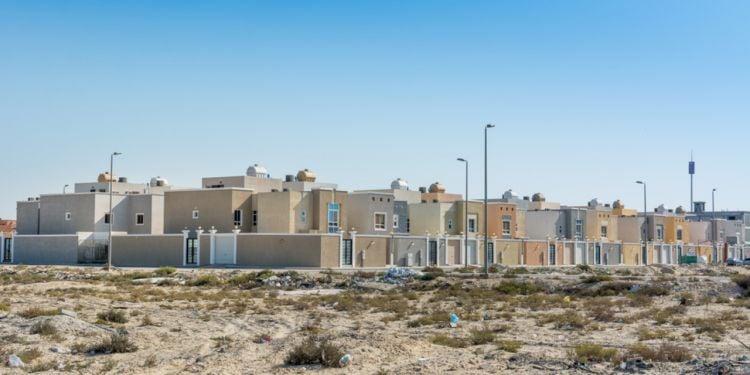
Dammam is the capital city of the Eastern Province, which is made up of smaller cities that, together, form the Greater Dammam Area, or Dammam Metropolis. Dammam is a beautiful city, while still being a bustling metropolitan area, offering the best of both a quiet oasis and the perks of urban living.
Dammam is also where the petrochemical industry is located. Its coastal region used to make profits from fishing and pearl diving in the Gulf seas. The former fisher villages have undergone significant development due to the early influx of expats who came with the boom of the oil industry. The impact can be seen in the development of infrastructure: from airports to schools.
The cost of living in Dammam is considerably lower compared to neighboring cities like Al Khobar and Dhahran. This makes it easier to find suitable accommodations that meet your budget. Many expats have chosen to take the quick commute to other cities to work while living in Dammam. This is also true because traffic is much less congested than in Riyadh, the capital, making commuting a much more pleasant experience.
Buy or rent in Dammam?
Buying property is not a popular option for expats living and working in Dammam — for a number of reasons.
First, the majority of expats living here do not consider Dammam their long-term destination. Most foreign employees are here to make and save money and prefer to make property investments in their home countries.
Second, property prices in Dammam are quite high, and very few expats are willing to invest this amount.
Finally, the ownership of land by non-Saudis is connected with investment initiatives. Therefore, it is not easily accessible to most people. The government adopted a law concerning the special privilege iqamas/premium residence permits. Holders of a Premium Residency can own and rent property.
If you cannot afford the special iqama, which costs around 800,000 SAR for permanent residence or 100,000 SAR for renewable iqama, you will probably opt for renting accommodation — typically, in western-style compounds.
Due to the complications described above, most expats residing in Dammam choose to rent. Renting here is less expensive compared to the neighboring Khobar and Dhahran, and there is a good selection of housing options.
Types of accommodation in Dammam
Just like in most big cities in Saudi Arabia, you will find several types of accommodation in Dammam.
Most expats prefer to live in compounds. These are closed gated communities with a lot of built-in infrastructures. Here, you will typically find pre-schools, fitness facilities, swimming pools, parks, convenience stores, coffee shops and more. As these are closed-walled-in communities, expats living here can stay relatively unaffected by the “outside” world, which offers a smoother transition into a new culture. Within the compound walls, you can (for the most part) dress and behave the way you would do back home. You may also find this to be a great option for socializing with other expats in the area.
Outside the compounds, you will find standalone apartment buildings, renovated places, single-family villas, townhouses, condos, and more.
Apartments typically come as furnished, semi-furnished or unfurnished. Furnished apartments come with everything you need and are ready for tenants to move into. Semi-furnished places typically have some of the basics (like a bed and carpeting) and main appliances (refrigerator, washing machine, etc.). Unfurnished apartments, on the other hand, are mostly empty and ready for you to equip as you see fit. They will usually come with AC units and kitchen cabinets but without any other appliances or furniture.
If you are looking for something bigger than an apartment, Dammam also has standalone villas and townhouses to offer. These tend to be significantly more expensive (depending on the size and neighborhood) but often have substantially more space, including a backyard, garden, terrace, etc.
If you are on a limited budget, consider renting a room in a family flat or house. Typically, these are let by local families, and your room will often come with a private bathroom and sometimes even a separate entrance.
Shared villas are sometimes an affordable alternative to apartments. They are villas that are usually occupied by a Saudi family whose children have moved out. They are designed to have their own entrance and parking so that you access them like you would any other apartment. More than a room, you will usually be renting a whole independent floor. On the downside, they may not be the best option long-term as they may be designated to have the children of the family come back after a while. Still, this has become more popular in cities like Riyadh.
Signing a rental contract in Dammam
The process for renting an apartment in Dammam is quite standard — and just like anywhere, it is very important to carefully look through your rental contract and make sure you understand every clause.
Rental contracts are typically signed for the period of one year. Rent in Saudi Arabia is usually paid 6 months or one year in advance, this may be a big expense to consider. Paying a whole year, as opposed to 6 months, will usually entail some sort of discount. Paying the rent monthly is also an option — but it is typically only available in modern compounds that are used to having expat residents.
When signing the lease, you will need to pay a refundable security deposit — usually, it is the equivalent of a month's rent. You will get your security deposit back at the end of the lease if no damage has been done to the property.
To sign a lease in Dammam, you will need to present the following documents:
- An Iqama (residency permit);
- Originals and copies of your passport and visa;
- Marriage certificate (if you are renting with your spouse);
- A letter from your employer specifying your salary and position (in some cases).
A typical rental contract in Saudi Arabia may include additional clauses and rules for the tenant to abide by. For instance, most landlords won't allow pets on the premises and may also have strict rules regarding visitors of the opposite sex.
This is why it is very important to carefully read through every clause in the contract so that you understand all of your do's and don'ts as a tenant.
Important:
If your rental contract is in Arabic and you don't speak the language, make sure to have it translated into English (or another language you prefer). Never sign a contract if you don't completely understand any of its stipulations.
In a lot of contracts, you will find the following obligations assigned to the tenant:
- Making all payments on time and ensuring that post-dated checks don't bounce;
- Keeping the rented property well-maintained;
- Abiding by all the terms and conditions outlined in the rental agreement;
- Avoiding creating any disturbances for the neighbors;
- Managing utilities and other related bills without delay;
- Not using the property for commercial or industrial purposes;
- Not subletting the property to other parties (unless this has been approved by the landlord).
The landlord, on the other hand, will typically be responsible for the following:
- Making sure the property is handed over to the tenant in a proper state;
- Providing the tenant with the receipts for all the checks received;
- Making sure all common areas related to the apartment are well-maintained;
- Performing all the requested repairs in a timely manner (as agreed upon in the rental contract);
- Ensuring the tenant's privacy and avoiding unscheduled visits;
- Guaranteeing to keep the price of rent the same throughout the length of the lease.
Important:
When you sign your lease, it is absolutely essential that you register it in the Ejar system, set up by the Ministry of Housing. This online portal has been created to manage rental property in Saudi Arabia and you will need to provide your Ejar number if you have a dispute with your landlord. To register in the Ejar system, you will need to upload a copy of the rental agreement and provide basic information about yourself and the landlord. Note that if you don't register in the Ejar system as a tenant, your Iqama (residence permit) may not be renewed.
How to find a place to rent in Dammam?
In a lot of cases, if you are moving to Saudi Arabia for work, your employment contract will include accommodation. If it does, your employer will take care of all the related arrangements. Even if this is the case, it is strongly advised that you inspect the property yourself prior to signing the lease.
If your employer doesn't provide accommodation, you will need to look for a place on your own. In exchange, your contract should include a housing allowance.
Just like in most places, one of the easiest ways to look for accommodation in Dammam is online. Check out websites like Bayut, PropertyFinder, Aqar, among others.
Another good place to look is local English newspapers. Most of these will have a housing section where you will find the latest available rentals as well as apartment-sharing options.
A typical rental ad will include the description of the accommodation (compound, neighborhood, number of rooms and bathrooms, size, etc.) as well as payment options.
If you do have friends, colleagues or family in Dammam, it's a good idea to ask for their assistance in your apartment hunt. What's more, you may be able to tap into the pool of word-of-mouth rental options before they are advertised online.
Social media can also be a very useful tool in your apartment search. Check out real estate groups on Facebook, Instagram and other media. You can also turn to expatriate groups and forums in Dammam for advice and tips for your housing search. It is also worth a shot to ask your colleagues about any Expat WhatsApp group that could help you in your search.
Finally, if you've had time to explore Dammam firsthand and have your heart set on a particular compound, you can simply stop by and talk to the building manager about any available rental options in the compound.
Rental costs in Dammam
Rental market prices vary and fluctuate with the demand. Location and size are two factors that play a part in pricing :
- Studio (room with open kitchen, bathroom) - 12,000 - 20,000 SAR/per year; (USD 3,200 - 5,333)
- 1-bedroom (kitchen, bedroom, washroom) - 20,000 - 35,000 SAR/per year; (USD 5,333 - 9,333)
- 3-bedroom (a living room, 2 bedrooms, kitchen, washroom) - 45,000SAR - 60,000 SAR/year. (USD 12,000 - 16,000)
Prices can easily be negotiated to reduce rates based on the wear and tear of a unit. If flooring, windows, or wall paint need to be replaced in the older dwellings, it is common to deduct the price from your annual rent.
Good to know:
Many Dammam inhabitants commute to work in the nearby cities of Dhahran and Khobar. Keep in mind that traffic during peak hours can be daunting and very time-consuming.
Additional expenses you may incur are agent fees (this should be SAR 2,500), utilities and compound management fees.
When renting housing in Dammam as an expat you will probably go through a real estate agent (which is the recommended option).
If you are renting in a compound, most utilities (water, gas, electricity, landline, internet, etc.) will typically be included in the price of your rent.
In standalone buildings, you will typically be the one responsible for handling utility costs (unless a different arrangement has been made with the landlord). However, your landlord will be the one responsible for maintaining common areas.
Tips for renting in Dammam
To make sure your move to a new city goes smoothly and without unpleasant surprises, do lots of research and check local forums before signing contracts and making any long-term arrangements.
Here are some tips that can come in handy and keep you out of trouble:
As we've mentioned above, in many cases, your employer will take care of your accommodation in Dammam. Naturally, this can be very convenient for newcomers and will save you lots of time and trouble related to an independent accommodation search. With that, even if your employer is in charge of your housing, it is strongly advised that you check the property in person and carefully study your lease agreement before signing it.
When inspecting the property, make a list of all the furnishings and appliances in the apartment and take note if anything is damaged or in need of repair.
Explore the neighborhood before committing to a rental contract. Make sure you feel comfortable here, and all the amenities you plan to use regularly are within walking distance.
Make sure you save the receipt for your security deposit until the end of your rental contract.
If you choose to rent in a standalone apartment building or house, do your best to follow local social norms. For instance, during the Holy Month of Ramadan, you will need to abstain from eating, drinking and smoking in public during the designated hours.
Note that Friday is a day off in Saudi Arabia and if you need to have any repairs or maintenance work done, take this into account when making arrangements. Many companies will be open for business after 4 p.m. on Friday.
Once all the formalities have been handled, you will be able to move into your new place. Typically, this is a matter of a few days after the lease has been signed. Sometimes, however, if you are planning to rent in a particularly popular compound, there may be a waiting list in place.
Useful links:
We do our best to provide accurate and up to date information. However, if you have noticed any inaccuracies in this article, please let us know in the comments section below.
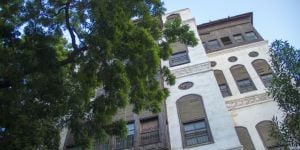

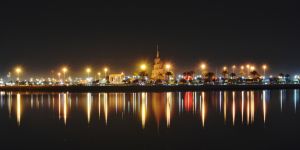



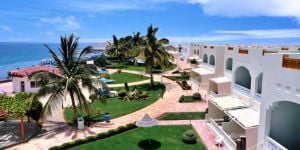
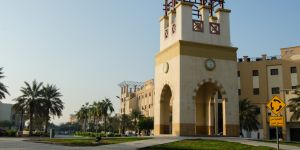




Comments